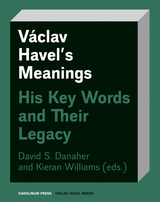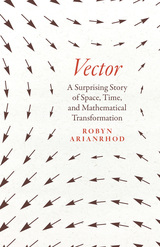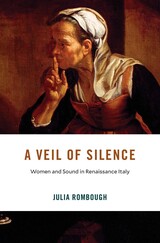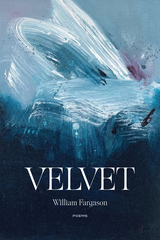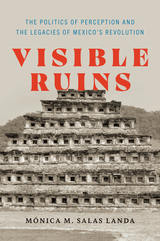15 start with C start with C
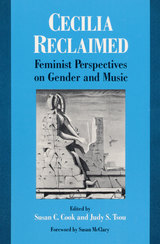
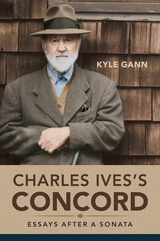
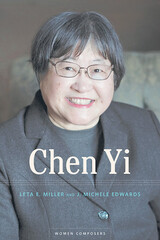
Winner of the Leila Webster Memorial Music Award for the International Alliance for Women in Music of the 2022 Pauline Alderman Awards for Outstanding Scholarship on Women in Music
Chen Yi is the most prominent woman among the renowned group of new wave composers who came to the US from mainland China in the early 1980s. Known for her creative output and a distinctive merging of Chinese and Western influences, Chen built a musical language that references a breathtaking range of sources and crisscrosses geographical and musical borders without eradicating them.
Leta E. Miller and J. Michele Edwards provide an accessible guide to the composer's background and her more than 150 works. Extensive interviews with Chen complement in-depth analyses of selected pieces from Chen's solos for Western or Chinese instruments, chamber works, choral and vocal pieces, and compositions scored for wind ensemble, chamber orchestra, or full orchestra. The authors highlight Chen's compositional strategies, her artistic elaborations, and the voice that links her earliest and most recent music. A concluding discussion addresses questions related to Chen's music and issues such as gender, ethnicity and nationality, transnationalism, border crossing, diaspora, exoticism, and identity.

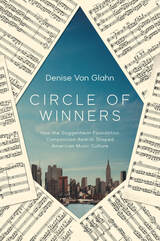
An essential high culture institution, the John Simon Guggenheim Memorial Foundation has both supported and molded American musical culture. Denise Von Glahn examines the Foundation and its immense influence from the organization’s prehistory and origins through the onset of World War II.
Funded by the Guggenheim mining fortune, the Foundation took early shape from the efforts of Carroll Wilson, Frank Aydelotte, and Henry Allen Moe--three Rhodes Scholars who initially struggled to envision and implement the organization’s ambitious goals. Von Glahn also examines the career of the longtime musical advisor Thomas Whitney Surette while profiling early awardees Aaron Copland, Ruth Crawford Seeger, William Grant Still, Roger Sessions, George Antheil, and Carlos Chàvez. She examines the processes behind their selection, their values and aesthetics, and their relationships with the insiders and others who championed their work.
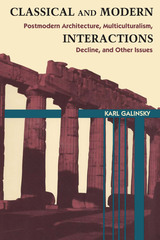
Postmodernism, multiculturalism, the alleged decline of the United States, deconstruction, leadership, and values—these topics have been at the forefront of contemporary intellectual and cultural debate and are likely to remain so for the near future. Participants in the debate can usefully enlarge the perspective to a comparison between the Greco-Roman world and contemporary society. In this thought-provoking work, a noted classics scholar tests the ancient-modern comparison, showing what it can add to the contemporary debates and what its limitations are.
Writing for intellectually adventurous readers, Galinsky explores Greece and Rome as multicultural societies, debates the merits of classicism in postmodern architecture, discusses the reign of Augustus in terms of modern leadership theories, and investigates the modern obsession with finding parallels between the supposed "decline and fall" of Rome and the "decay" of U.S. society.
Within these discussions, Galinsky shows the continuing vitality of the classical tradition in the contemporary world. The Greek and Roman civilizations have provided us not only with models for conscious adaptation but also points for radical departures. This ability to change and innovate from classical models is crucial, Galinsky maintains. It creates a reciprocal process whereby contemporary issues are projected into the past while aspects of the ancient world are redefined in terms of current approaches.
These essays result in a balanced assessment and stimulating restatement of some major issues in both contemporary U.S. society and the Greco-Roman world. The book, which speaks to a wide interdisciplinary audience, is based on a series of lectures that Galinsky gave as a national visiting scholar for Phi Beta Kappa. It concludes with a discussion of the role of classical studies in the United States today.
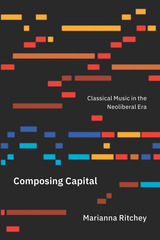
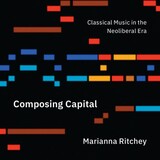
This is an auto-narrated audiobook edition of this book.

This ambitious study offers a panoramic survey of musical thought in the eighteenth century and, at the same time, a close analysis of the important theoretical topics of the period. The result is the most comprehensive account ever given of the theory behind the music of late Baroque and early Classical composers from Bach to Beethoven.
While giving preeminent theorists their due, Joel Lester also examines the works of over 100 seventeenth- and eighteenth-century writers to show how prominent theories were received and applied in actual teaching situations. Beginning with the influence of Zarlino and seventeenth-century theorists, Lester goes on to focus on central traditions emerging from definitive works in the early eighteenth century: species counterpoint in the writings of Fux; thoroughbass as presented by Niedt and Heinichen Rameau’s harmonic theories; and Mattheson’s views on melodic structure. The author traces the development and interactions of these traditions over the remainder of the century, through the writings of Albrechtsberger, C. P. E. Bach, Kirnberger, Koch, Marpurg, Martini, Nichelmann, Riepel, and many others. This historical overview is leavened throughout with accounts of individual composers grappling with theoretical issues—Haydn’s careful study of Fux’s treatise, Mozart’s instructions on harmony to his composition students, Beethoven’s own student exercises.
The links between various theoretical traditions, the pervasive influence of Rameau’s harmonic thinking, and the harmonic theories of Koch are just some of the numerous topics given their first full treatment here. Many of the theorists Lester cites are either unknown or often misunderstood today. By bringing their contributions to light and placing them within the context of theoretical tradition, Lester offers a fresh perspective, one that will inform and enhance any future study of this magnificent era in Western music.

The concerto has attracted relatively little attention as a genre, Joseph Kerman observes, and his urbane and wide-ranging Norton Lectures fill the gap in a way that will delight all music listeners. Kerman addresses the full range of the concerto repertory, treating both the general and the particular. His perceptive commentary on individual works--with illustrative performances on the accompanying CD--is alive with enthusiasm, intimations, and insights into the spirit of concerto.
Concertos model human relationships, according to Kerman, and his description of the conversation between solo instrument and orchestra brings this observation vividly to life. What does the solo instrument do when it first enters in a concerto? How do composers balance claims of solo-orchestra contrast and solo virtuosity? When do they deploy the sumptuous musical textures that only concertos can provide? Kerman's unexpected answers offer a new understanding of the concerto and a stimulus to enhanced listening.
In language that the Boston Globe's Richard Dyer calls "always delightfully vivid," Kerman conducts readers and listeners into the conversations that concertos so eloquently enact. Amid the musical forces at play, he renews the dialogue of music lovers with the language of the concerto--the familiar, the lesser-known, the cherished, and the undervalued. The CD packaged with the book contains movements from works that Kerman treats most intensively--by Bach, Mozart, Beethoven, Liszt, Tchaikovsky, Bartók, Stravinsky, and Prokofiev.
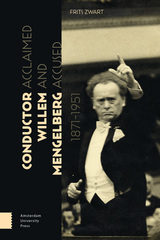
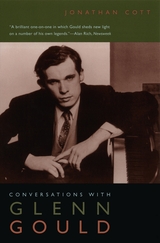
Jonathan Cott, a prolific author and poet praised by Larry McMurtry as "the ideal interviewer," was one of the very few people to whom Gould ever granted an interview. Cott spoke with Gould in 1974 for Rolling Stone and published the transcripts in two long articles; after Gould's death, Cott gathered these interviews in Conversations with Glenn Gould, adding an introduction, a selection of photographs, a list of Gould's recorded repertoire, a filmography, and a listing of Gould's programs on radio and TV. A brilliant one-on-one in which Gould discusses his dislike of Mozart's piano sonatas, his partiality for composers such as Orlando Gibbons and Richard Strauss, and his admiration for the popular singer Petula Clark (and his dislike of the Beatles), among other topics, Conversations with Glenn Gould is considered by many, including the subject, to be the best interview Gould ever gave and one of his most remarkable performances.
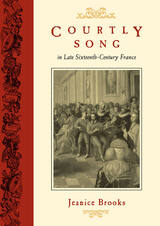
Brooks concentrates on a period in which the court's importance in projecting the symbolic centrality of monarchy was growing rapidly and considers the role of the air in defining patronage hierarchies at court and in enhancing courtly visions of masculine and feminine virtue. Her study illuminates the court's relationship to the world beyond its own confines, represented first by Italy, then by the countryside. In addition to the 40 editions of airs de cour printed between 1559 and 1589, Brooks draws on memoirs, literary works, and iconographic evidence to present a rounded vision of French Renaissance culture.
The first book-length examination of the history of air de cour, this work also sheds important new light on a formative moment in French history.
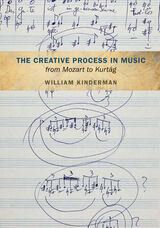
Great music arouses wonder: how did the composer create such an original work of art? What was the artist's inspiration, and how did that idea become a reality? Cultural products inevitably arise from a context, a submerged landscape that is often not easily accessible. To bring such things to light, studies of the creative process find their cutting edge by probing beyond the surface, opening new perspectives on the apparently familiar.
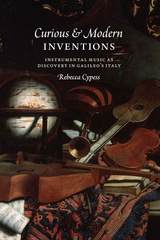
Rebecca Cypess shows that early modern thinkers were fascinated with instrumental technologies. The telescope, the clock, the pen, the lute—these were vital instruments for leading thinkers of the age, from Galileo Galilei to Giambattista Marino. No longer used merely to remake an object or repeat a process already known, instruments were increasingly seen as tools for open-ended inquiry that would lead to new knowledge. Engaging with themes from the history of science, literature, and the visual arts, this study reveals the intimate connections between instrumental music and the scientific and artisanal tools that served to mediate between individuals and the world around them.
READERS
Browse our collection.
PUBLISHERS
See BiblioVault's publisher services.
STUDENT SERVICES
Files for college accessibility offices.
UChicago Accessibility Resources
home | accessibility | search | about | contact us
BiblioVault ® 2001 - 2024
The University of Chicago Press


